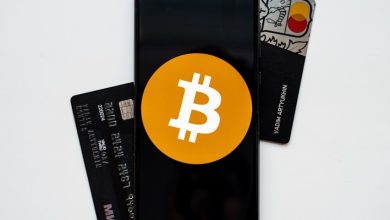The Risks of Public Wi-Fi for Crypto Transactions

- Understanding the vulnerabilities of using public Wi-Fi for crypto transactions
- Tips to protect your cryptocurrency assets when using public Wi-Fi networks
- Why hackers target public Wi-Fi users for crypto theft
- The dangers of unsecured connections when conducting cryptocurrency transactions in public places
- How to identify secure Wi-Fi networks for safe crypto transactions
- Best practices for securing your cryptocurrency transactions on public Wi-Fi networks
Understanding the vulnerabilities of using public Wi-Fi for crypto transactions
When using public Wi-Fi for cryptocurrency transactions, it is important to understand the vulnerabilities associated with this practice. Public Wi-Fi networks are often unsecured, making it easier for hackers to intercept sensitive information such as passwords and private keys. This puts your crypto assets at risk of being stolen.
Additionally, public Wi-Fi networks are often shared among multiple users, increasing the likelihood of malicious actors being present on the network. These individuals may use various tactics such as man-in-the-middle attacks to intercept and alter data transmitted between your device and the internet, potentially compromising your crypto transactions.
It is crucial to be aware of the risks involved in using public Wi-Fi for crypto transactions and take necessary precautions to protect your assets. One way to mitigate these risks is to use a virtual private network (VPN) when connecting to public Wi-Fi networks. A VPN encrypts your internet traffic, making it more difficult for hackers to intercept and decipher your sensitive information.
Tips to protect your cryptocurrency assets when using public Wi-Fi networks
When using public Wi-Fi networks, it is crucial to take precautions to protect your cryptocurrency assets from potential security threats. Here are some tips to help you safeguard your funds:
- Consider using a virtual private network (VPN) to encrypt your internet connection and add an extra layer of security.
- Avoid accessing your crypto wallets or making transactions on public Wi-Fi networks whenever possible.
- If you must use public Wi-Fi for crypto-related activities, ensure that your devices are equipped with up-to-date security software.
- Disable any file sharing or network discovery options on your devices to prevent unauthorized access to your data.
- Be cautious of the websites you visit and only use secure, encrypted connections (https) for any crypto transactions.
By following these tips, you can help minimize the risks associated with using public Wi-Fi networks and protect your cryptocurrency assets from potential security breaches.
Why hackers target public Wi-Fi users for crypto theft
Public Wi-Fi networks are popular targets for hackers looking to steal cryptocurrencies from unsuspecting users. These networks are often unsecured, making it easy for cybercriminals to intercept data transmitted over them. Hackers can use techniques like man-in-the-middle attacks to eavesdrop on users’ transactions and steal their crypto without their knowledge.
One reason why hackers target public Wi-Fi users for crypto theft is the anonymity these networks provide. When users connect to a public Wi-Fi network, their online activities are not as easily traceable as when they are using their home network. This makes it harder for law enforcement to track down cybercriminals who steal cryptocurrencies, giving hackers a sense of security.
Additionally, public Wi-Fi networks are often crowded with users, making it easier for hackers to blend in and go unnoticed. This allows them to carry out their attacks without raising suspicion, increasing their chances of success. Hackers can also use tools like packet sniffers to capture sensitive information, such as private keys, from multiple users simultaneously.
Overall, public Wi-Fi networks present a high-risk environment for crypto transactions. Users should exercise caution when connecting to these networks and avoid conducting any sensitive activities, such as trading or transferring cryptocurrencies, while connected to public Wi-Fi. By taking these precautions, users can better protect their digital assets from falling into the hands of hackers.
The dangers of unsecured connections when conducting cryptocurrency transactions in public places
When conducting cryptocurrency transactions in public places, it is crucial to be aware of the dangers of unsecured connections. Using public Wi-Fi networks can expose you to security risks that could compromise your funds and personal information.
Unsecured connections make it easier for hackers to intercept your data, including your private keys and login credentials. This puts your cryptocurrency holdings at risk of theft and unauthorized access.
It is important to remember that public Wi-Fi networks are often unencrypted, making it easier for cybercriminals to eavesdrop on your online activities. Without proper encryption, your sensitive information is vulnerable to interception.
To protect yourself when conducting cryptocurrency transactions in public, always use a virtual private network (VPN) to encrypt your connection. A VPN adds an extra layer of security by creating a secure tunnel between your device and the internet, preventing hackers from intercepting your data.
Additionally, avoid accessing your cryptocurrency wallets or exchanges on public computers or shared devices. These devices may be compromised with malware or keyloggers that can record your keystrokes and steal your login information.
How to identify secure Wi-Fi networks for safe crypto transactions
When conducting crypto transactions, it is crucial to ensure you are connected to a secure Wi-Fi network to protect your sensitive information from potential hackers. Here are some tips to help you identify secure Wi-Fi networks:
- Look for networks that are password protected. Public networks that require a password are generally more secure than open networks.
- Check for networks with WPA2 encryption. This type of encryption provides a higher level of security compared to older encryption methods.
- Avoid connecting to networks with generic names like “Free Wi-Fi” or “Public Wi-Fi.” These networks are more likely to be unsecured and compromised by hackers.
- Verify the network with the establishment you are in. If you are in a cafe or restaurant, ask an employee for the official network name to ensure you are connecting to the correct one.
- Consider using a Virtual Private Network (VPN) for an extra layer of security. A VPN encrypts your internet connection, making it more difficult for hackers to intercept your data.
By following these guidelines, you can help minimize the risks associated with conducting crypto transactions over public Wi-Fi networks. Stay vigilant and prioritize security when it comes to your financial transactions.
Best practices for securing your cryptocurrency transactions on public Wi-Fi networks
When using public Wi-Fi networks for cryptocurrency transactions, it is crucial to follow best practices to ensure the security of your funds. Here are some tips to help you protect your assets:
- 1. **Utilize a Virtual Private Network (VPN):** Using a VPN encrypts your internet connection, making it more secure and less vulnerable to hackers.
- 2. **Enable Two-Factor Authentication (2FA):** Adding an extra layer of security with 2FA can help prevent unauthorized access to your accounts.
- 3. **Avoid accessing sensitive information:** Try to limit the amount of personal information you access while connected to public Wi-Fi networks to reduce the risk of exposure.
- 4. **Use secure websites:** Only use reputable and secure websites for your cryptocurrency transactions to minimize the chances of falling victim to phishing scams.
- 5. **Keep your software up to date:** Regularly updating your devices and cryptocurrency wallets can help patch any vulnerabilities that hackers may exploit.
By following these best practices, you can help safeguard your cryptocurrency transactions while using public Wi-Fi networks. Remember, it’s better to be safe than sorry when it comes to securing your digital assets.



